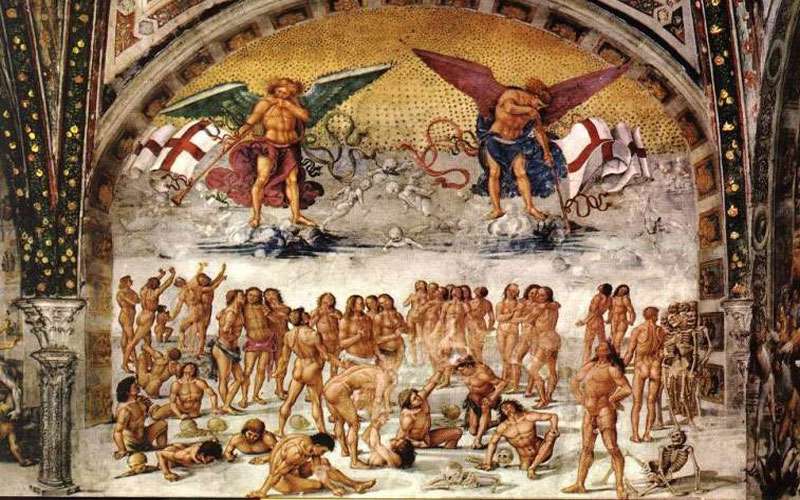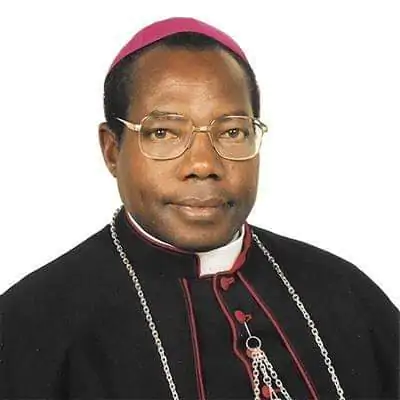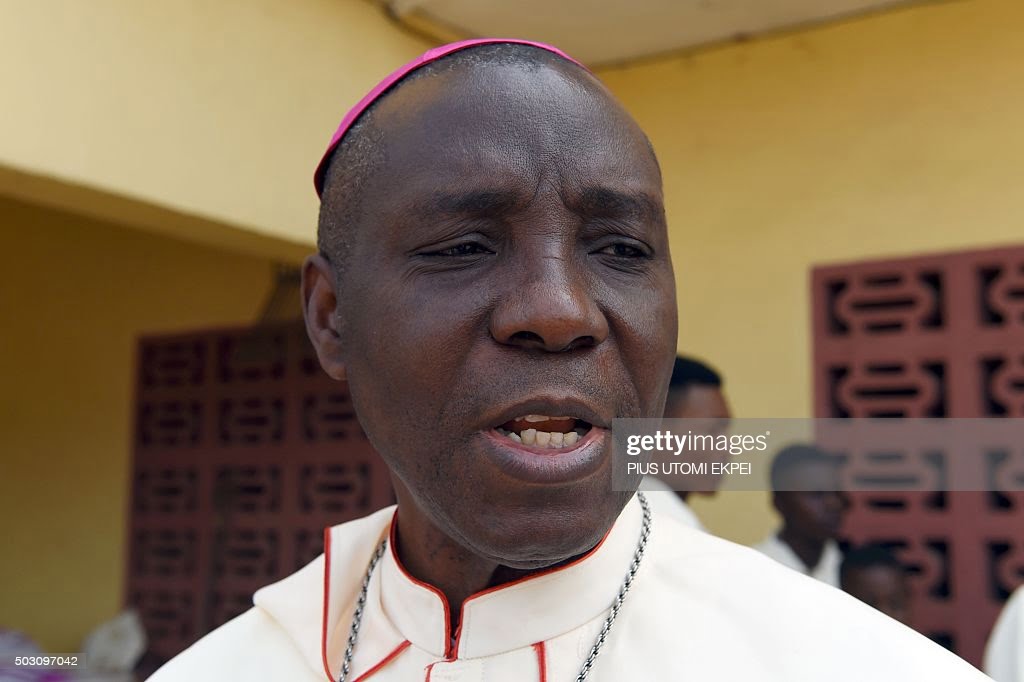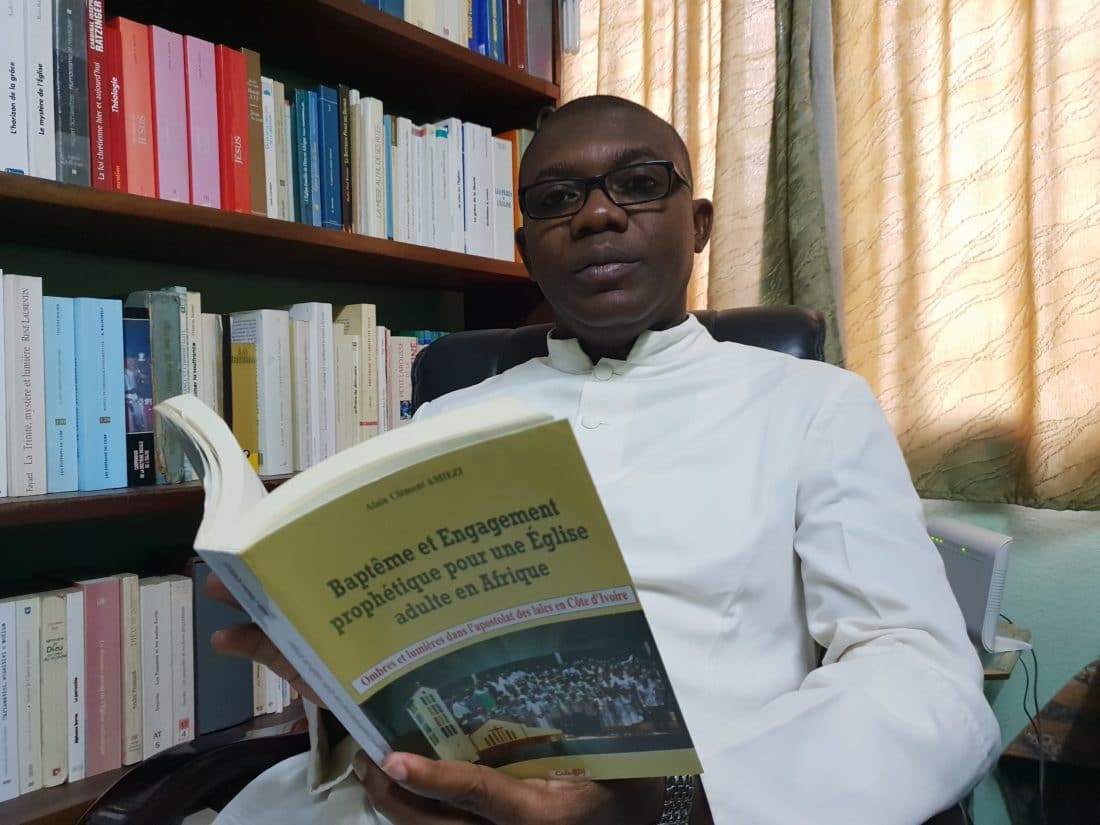


AGENCE DE NOUVELLES RECOWACERAO, REONA a choisi cet article qui a été initialement publié sur Catholic News Agency le 24 octobre 2018, pour nous aider à mieux comprendre le mystère de la résurrection du Christ.
L’AGENCE DE NOUVELLES DE RECOWACERAO a compris que chaque fois que les chrétiens récitent le Credo des Apôtres, ils affirment leur croyance en ce qui leur arrivera après la mort.
La croyance en la résurrection de son corps physique à la fin des temps est au cœur de la théologie chrétienne et trouve son fondement dans la résurrection du Christ, qui s’est élevé dans le corps et l’âme trois jours après sa passion et sa mort.
Mais selon une enquête Pew de 2018, 29 pour cent des chrétiens aux États-Unis ont la conviction du Nouvel Âge de la réincarnation – la conviction que lorsque son corps meurt, son âme vit dans un corps nouveau et différent, sans rapport avec le premier.
Le pourcentage de catholiques aux États-Unis qui ont dit croire en la réincarnation était encore plus élevé – 36%; un peu moins des 38% de personnes non affiliées à la religion qui ont dit croire la même chose.
Cependant, selon l’enseignement catholique, la croyance en autre chose que la résurrection du corps est totalement incompatible avec une théologie et une anthropologie chrétiennes de la personne humaine.
D’où vient la croyance en la résurrection?
Même avant Jésus-Christ, la croyance que le corps s’élèverait à la fin des temps devenait une croyance plus courante, bien que non universellement répandue, parmi certains groupes de Juifs, tels que les Pharisiens.
Les sadducéens, par exemple, “étaient douteux de l’autorité à donner aux prophètes et à d’autres écrits … (qui comprenaient) le scepticisme à propos des réalités spirituelles comme l’âme ou même les anges”, a déclaré Joel Barstad, qui est doyen académique et professeur agrégé. de théologie au Saint John Vianney Theological Seminary à Denver, Colorado.
“D’après les preuves du Nouveau Testament, il semblerait qu’ils étaient particulièrement hostiles à l’idée d’une future résurrection des morts”, a-t-il déclaré à l’AIIC.
«Les pharisiens, en revanche, croyaient aux anges et aux âmes spirituelles et à la résurrection générale des morts», a-t-il dit.
Alors qu’ils devenaient plus convaincus de la «fidélité radicale de Dieu», a-t-il noté, la croyance en la résurrection corporelle a pris racine, ouvrant la voie à l’acceptation de la résurrection du Christ.
“La résurrection de Jésus d’entre les morts a confirmé cette croyance, mais elle lui a également donné une base profonde et solide”, a-t-il déclaré.
Que signifie la croyance en la résurrection pour les chrétiens?
Selon le Catéchisme de l’Église catholique: «La« résurrection de la chair »(la formulation littérale du credo des apôtres) signifie non seulement que l’âme immortelle vivra après la mort, mais que même notre« corps mortel »viendra à la vie à nouveau. La croyance en la résurrection des morts a été un élément essentiel de la foi chrétienne depuis ses débuts. «La confiance des chrétiens est la résurrection des morts; croyant cela, nous vivons. »Comment certains d’entre vous peuvent-ils dire qu’il n’ya pas de résurrection des morts? Mais s’il n’y a pas de résurrection des morts, alors Christ n’a pas été ressuscité; si Christ n’a pas été ressuscité, alors notre prédication est vaine et votre foi est vaine … Mais en fait, Christ est ressuscité d’entre les morts, les prémices de ceux qui se sont endormis. »
La confiance chrétienne dans la résurrection corporelle vient du Christ lui-même, et la promesse du Nouveau Testament que le salut passe par le Christ suit en tout, y compris sa mort et sa résurrection, Michael Root, professeur de théologie systématique à l’Université catholique d’Amérique, a déclaré à l’AIIC.
“Le salut est l’unité avec Christ, Christ apporte le royaume de Dieu, et ce royaume se réalise dans la résurrection”, a déclaré Root.
Il y a beaucoup de «flou de penser» concernant la mort que beaucoup de chrétiens détiennent en plus de la réincarnation, a ajouté Barstad, comme croire qu’après la mort, on meurt et va au ciel et y reste pour toujours, plutôt que de rejoindre avec leur corps ressuscité à la fin de temps.
“La vague idée que quelque chose appelé une âme ou un esprit ou une ombre persiste après la mort dans une sorte d’endroit ou de condition où il peut être plus ou moins heureux n’est pas chrétienne”, a déclaré Barstad. «Une âme humaine sans corps est une tragédie. Pensez à ce qu’est un corps pour l’âme. C’est l’instrument, le nexus, le nœud, le vaisseau par lequel, par lequel, dans lequel une âme établit et maintient le contact avec la réalité », a-t-il ajouté.
Un corps, a-t-il dit, a concrètement vécu tout ce qu’une âme a traversé au cours de sa vie. C’est le mode réel par lequel l’âme s’est liée aux autres. Cela fait de cette personne ce qu’elle est – le père d’un fils en particulier, ou la fille d’une mère en particulier, la femme d’un mari en particulier, ou l’ami d’une personne en particulier.
«Une âme complètement dépouillée de son corps n’est littéralement personne. Peu importe si une telle personne ne vit pas éternellement! Un chrétien est quelqu’un qui veut être ce quelqu’un … maintenant et après la mort et à travers les âges. Mais pour que cela soit possible, j’aurai besoin que mon corps ressuscite ainsi que les corps de tout le monde et tout ce avec quoi j’ai une relation », a-t-il déclaré.
«Je dois mourir complètement et être dissous dans la poussière dont je suis issu, puis je dois me remettre dans une nouvelle vie», a-t-il déclaré. «Le problème, c’est que je cesserais d’exister au milieu de ce processus. Quelqu’un d’autre doit me maintenir en vie lorsque je passe de la mort à une nouvelle vie. Ce n’est que parce que le Christ m’aime que je suis tenu d’être, non seulement mon âme, personne, mais quelqu’un que je suis parce que j’ai ce corps. »
Pourquoi les chrétiens devraient rejeter la réincarnation
Les deux principales raisons pour lesquelles un chrétien devrait rejeter la réincarnation sont qu’il s’oppose à la voie du salut offerte par le Christ et parce qu’elle va à l’encontre de la nature de la personne humaine, a déclaré Root.
“Cela contredit l’image du salut que nous avons dans le Nouveau Testament, où notre participation à la résurrection du Christ est ce qu’est le salut”, a déclaré Root, “et cela nous donne une image très différente de ce que c’est que d’être un être humain – un moi désincarné qui n’est pas lié à un moment particulier. “
«Le christianisme prend très au sérieux le fait que nous sommes des êtres incarnés, et toute notion de réincarnation signifie que le soi réel n’a qu’une sorte de connexion accidentelle à un corps spécifique parce que vous passerez à un autre corps et à un autre corps et à un autre corps, et à la corporalité finit par être en quelque sorte le meilleur point de côté sur qui vous êtes », a-t-il déclaré.
La croyance en la résurrection est liée à une vision chrétienne de la personne humaine, a déclaré Root, qui est qu’une personne n’aura jamais qu’un seul corps particulier, et ce qui se passe dans ce corps particulier est important.
«Il y a très peu de dogmes catholiques formels concernant les détails de la résurrection, mais celui qui existe est que nous nous lèverons dans le même corps que nous avons maintenant. Il n’y a pas de définition officielle de ce qui est «ici» et il y a une grande transformation, mais néanmoins c’est le dogme catholique officiel que nous nous lèverons dans le corps que nous avons maintenant », a-t-il dit.
La transformation du corps peut être vue dans le Christ ressuscité qui, une fois ressuscité, a pu traverser les murs, apparaître ou disparaître soudainement et contrôler apparemment qui a pu le reconnaître, bien qu’il ait maintenu son corps, a noté Root.
La vision chrétienne de la personne humaine signifie également que ce qui se passe avec le corps de chaque personne est important. Dans le document «Jésus-Christ: porteur de l’eau de vie» des Conseils pontificaux pour la culture et le dialogue interreligieux, le Vatican a déclaré que la croyance en la réincarnation est incompatible avec le christianisme car elle nie la liberté et la responsabilité des personnes qui agissent par leur intermédiaire.
La réincarnation est «inconciliable avec la croyance chrétienne selon laquelle une personne humaine est un être distinct, qui vit une vie dont elle est pleinement responsable: cette compréhension de la personne met en question à la fois la responsabilité et la liberté», précise le document. Un chrétien occupe un corps qui peut être jugé pour ses péchés, mais qui peut également participer à l’œuvre rédemptrice du Christ à travers ses souffrances, a noté le Vatican.
«En provoquant la rédemption par la souffrance, le Christ a également élevé la souffrance humaine au niveau de la rédemption. Ainsi, chaque homme dans sa souffrance peut également devenir un participant à la souffrance rédemptrice du Christ », déclare le document.
Barstad a noté que la croyance du Nouvel Âge en la réincarnation comme quelque chose de positif contredit même la plupart des religions traditionnelles qui croient en la réincarnation, comme le bouddhisme et l’hindouisme, qui considèrent finalement la réincarnation comme quelque chose à échapper.
«Je n’ai connaissance d’aucune doctrine solide de la réincarnation, que ce soit des platoniciens occidentaux ou des bouddhistes orientaux, qui considère la réincarnation d’une âme comme une bonne chose; peut-être que certains hindous ou stoïciens pourraient y voir une nécessité cosmique bénigne, comme les lois physiques régissant la conservation de l’énergie », a-t-il déclaré.
«Mais certainement l’aspiration la plus profonde des platoniciens et des bouddhistes est de dissoudre le lien des relations temporelles et corporelles une fois pour toutes; c’est-à-dire dissoudre la relation au corps si complètement qu’aucune autre incarnation n’est possible pour cette âme. Le but est que l’âme ne devienne complètement et définitivement personne. »
L’espoir de la résurrection
L’espoir chrétien réside dans la croyance que le Christ a vaincu la mort, et les chrétiens pourront être connus et aimés pleinement comme eux-mêmes dans la vie éternelle, qui comprendra leurs corps ressuscités, a déclaré Barstad.
«(A) Christian veut continuer d’exister comme lui-même. Il sait qu’il est aimé de son Créateur et Rédempteur qui veut qu’il existe toujours. Par conséquent, il peut avoir le courage de s’aimer suffisamment pour que ce soi, ce quelqu’un, existe pour toujours », a déclaré Barstad.
Alors que les chrétiens peuvent éprouver des torts et des souffrances dans cette vie, ils peuvent avoir l’espoir de savoir qu ‘«ils ont été aimés par le Christ qui, par sa propre mort et montée divine-humaine, peut les démonter, les transformer en poussière et les remodeler, faire quelque chose de beau du désordre emmêlé », a-t-il ajouté.
Les chrétiens ont également l’espoir que non seulement ils ressusciteront individuellement, mais qu’ils rejoindront leurs proches, “vivant dans un ciel et une terre renouvelés et remodelés”, a déclaré Barstad.
«C’est pourquoi nous évangélisons, c’est pourquoi nous nous repentons et réparons nos torts et pardonnons à ceux qui nous font du tort, c’est pourquoi nous prions pour les morts, et c’est pourquoi les saints qui jouissent déjà de la vision (béatifique) de Dieu néanmoins priez toujours pour nous. Ils sont toujours investis dans ce monde et attendent avec nous la révélation finale du Christ qui provoquera la résurrection de tous. »
xxxxxxxxxxxxxx
RECOWACERAO NEWS AGENCY, REONA picked this article which was originally published on Catholic News Agency October 24, 2018 to help us understand better the mystery of Christ’s resurrection. .
RECOWACERAO NEWS AGENCY understood that every time Christians recite the Apostles’ Creed, they affirm their belief in what will happen to them after death.
The belief in the resurrection of one’s physical body at the end of time is central to Christian theology, and finds its basis in the resurrection of Christ, who rose in body and soul three days after his passion and death.
But according to a 2018 Pew survey, 29 percent of Christians in the US hold the New Age belief of reincarnation – the belief that when one’s body dies, one’s soul lives on in a new and different body, unrelated to the first.
The percentage of Catholics in the U.S.A who said they believe in reincarnation was even higher – 36 percent; just shy of the 38 percent of religiously unaffiliated people who said they believe the same.
However, according to Catholic teaching, belief in anything other than the resurrection of the body is completely incompatible with a Christian theology and anthropology of the human person.
Where did the belief in resurrection come from?
Even before Christ, the belief that the body would rise at the end of time was becoming a more common, though not universally held, belief among certain groups of Jews, such as the Pharisees.
The Sadducees, for example, “were dubious about the authority to be given to the Prophets and other writings…(which included) skepticism about spiritual realities like the soul or even angels,” said Joel Barstad, who serves as Academic Dean and associate professor of theology at Saint John Vianney Theological Seminary in Denver, Colorado.
“From New Testament evidence it would seem they were particularly hostile to the idea of a future resurrection of the dead,” he told CNA.
“The Pharisees on the other hand believed in angels and spiritual souls and the general resurrection of the dead,” he said.
As they became more convinced of the “radical faithfulness of God,” he noted, belief in bodily resurrection took root, paving the way for the acceptance of the resurrection of Christ.
“The resurrection of Jesus from the dead confirmed that belief, but it also gave it a deep and solid foundation,” he said.
What does belief in resurrection mean for Christians?
According to the Catechism of the Catholic Church: “The ‘resurrection of the flesh’ (the literal formulation of the Apostles’ Creed) means not only that the immortal soul will live on after death, but that even our ‘mortal body’ will come to life again. Belief in the resurrection of the dead has been an essential element of the Christian faith from its beginnings. ‘The confidence of Christians is the resurrection of the dead; believing this we live.’ How can some of you say that there is no resurrection of the dead? But if there is no resurrection of the dead, then Christ has not been raised; if Christ has not been raised, then our preaching is in vain and your faith is in vain…. But in fact Christ has been raised from the dead, the first fruits of those who have fallen asleep.”
The Christian confidence in bodily resurrection comes from Christ himself, and the New Testament promise that salvation comes through follow Christ in everything, including his death and resurrection, Michael Root, a professor of Systematic Theology at The Catholic University of America, told CNA.
“Salvation is unity with Christ, Christ brings the kingdom of God, and that kingdom is realized in the resurrection,” Root said.
There is a great deal of “fuzziness of thinking” regarding death that many Christians hold besides reincarnation, Barstad added, such as believing that after death one dies and goes to heaven and stays there forever, rather than joining with their resurrected body at the end of time.
“The vague notion that something called a soul or a spirit or a shade lingers after death in some kind of place or condition where it can be more or less happy is not Christian,” Barstad said. “A human soul without a body is a tragedy. Think about what a body is to the soul. It is the instrument, the nexus, the node, the vessel through which, by which, in which a soul establishes and sustains contact with reality,” he added.
A body, he said, has concretely experienced everything that a soul has gone through in its lifetime. It is the actual mode through which the soul has related to others. It makes that person who they are – the father of a particular son, or the daughter of a particular mother, the wife of a particular husband, or the friend of a particular person.
“A soul stripped completely of its body is literally nobody. Who cares whether such a nobody lives forever! A Christian is someone who wants to be this somebody…now and after death and unto the ages of ages. But for that to be possible, I’ll need my body resurrected along with the bodies of everyone and everything I have a relationship with,” he said.
“I have to die completely and be dissolved back into the dust from which I came; and then I have to be put back together again in a new kind of life,” he said. “The trouble is I would cease to exist at the midpoint of this process. Someone else has to hold me in being as I pass over from death to new life. Only because Christ loves me am I held in being, not just my soul, the nobody, but the somebody I am because I have this body.”
Why Christians should reject reincarnation
The two main reasons that a Christian should reject reincarnation is that it is opposed to the way of salvation offered by Christ, and because it goes against the nature of the human person, Root said.
“It contradicts the picture of salvation that we have in the New Testament, where our participation in Christ’s resurrection is what salvation is all about,” Root said, “and it gives us quite a different picture of what it is to be a human being – a disembodied self that isn’t related to any particular time.”
“Christianity takes very seriously that we are embodied beings, and any notion of reincarnation means that the real self only has a kind of accidental connection to any specific body, because you’ll go on to another body and another body and another body, and bodiliness ends up being kind of at best side point about who you are,” he said.
The belief in the resurrection is bound up with a Christian view of the human person, Root said, which is that a person will only ever have one particular body, and what happens in that particular body matters.
“There’s very little formal Catholic dogma about the resurrection details, but one that there is is that we will rise in the same body we now have. There’s no official definition of what ‘same’ is here, and there’s a big transformation, but nevertheless it is official Catholic dogma that we will rise in the body we now have,” he said.
The transformation of the body can be seen in the resurrected Christ who, once resurrected, was able to walk through walls, appear or disappear suddenly, and seemingly control who was able to recognize him, though he maintained his body, Root noted.
The Christian view of the human person also means that what happens with each person’s body matters. In the document “Jesus Christ: The Bearer of the Water of Life” by the Pontifical Councils for Culture and for Interreligious Dialogue, the Vatican said that belief in reincarnation is incompatible with Christianity because it denies the freedom and responsibility of persons who act through their bodies.
Reincarnation is “irreconcilable with the Christian belief that a human person is a distinct being, who lives one life, for which he or she is fully responsible: this understanding of the person puts into question both responsibility and freedom,” the document states. A Christian occupies a body, which is able to be judged for its sins, but is also able to participate in Christ’s redemptive work through its suffering, the Vatican noted.
“In bringing about the redemption through suffering, Christ has also raised human suffering to the level of the redemption. Thus each man in his suffering can also become a sharer in the redemptive suffering of Christ,” the document states.
Barstad noted that the New Age belief in reincarnation as something positive even contradicts most traditional religions that believe in reincarnation, such as Buddhism and Hinduism, which ultimately view reincarnation as something to be escaped.
“I am not aware of any robust doctrine of reincarnation, whether that of Western Platonists or Eastern Buddhists, that regards reincarnation of a soul as a good thing; maybe certain Hindus or a Stoic could see it as a benign cosmic necessity, like the physical laws governing the conservation of energy,” he said.
“But certainly the deepest aspiration of Platonists and Buddhists is to dissolve the nexus of temporal, bodily relationships once and for all; that is, to dissolve the relationship to body so completely that no further embodiment is possible for that soul. The goal is for the soul to become completely and permanently nobody.”
The hope of the resurrection
Christian hope lies in the belief that Christ has conquered death, and Christians will be able to be known and loved fully as themselves in eternal life, which will include their resurrected bodies, Barstad said.
“(A) Christian wants to continue to exist as himself. He knows that he is loved by his Creator and Redeemer who wants him to exist always. Consequently, he can have the courage to love himself enough to want that self, this somebody, to exist forever,” Barstad said.
While Christians may experience wrongs and sufferings in this life, they can have the hope of knowing that “they have been loved by Christ who through his own divine-human dying and rising can take them apart, to the very dust, and refashion them, making something beautiful out of the tangled mess,” he added.
Christians also have the hope that not only will they be resurrected individually, but that they will rejoin their loves ones, “living in a renewed and refashioned heaven and earth,” Barstad said.
“This is why we evangelize, this is why we repent and make amends for our wrongs and forgive those who wrong us, this is why we pray for the dead, and this is why the saints who already enjoy the (beatific) vision of God nonetheless still pray for us. They are still invested in this world and await with us the final revelation of Christ that will bring about the resurrection of everybody.”
- RECOWA-CERAO WELCOMES TWO NEW BISHOPS - July 26, 2024
- TODAY WE ARE TAKING UP THE THIRD SEGMENT IN OUR SERIES - July 26, 2024
- CHARACTERISTICS OF GREAT LEADERS SHARED BY A USA AUTHOR - July 25, 2024







